|
My blog posts revolve around my interests and vocation as a historian: the intersection of history and contemporary church life, the intersection of history and contemporary politics, serendipitous discoveries in archives or on research trips, publications and research projects, upcoming conferences, and speaking engagements.
I sometimes blog for two other organizations, the Canadian Baptist Historical Society and the Centre for Post-Christendom Studies. The views expressed in these blogs represent the views of the authors, and not necessarily those of any organizations with which they are associated. |
|
Images from the archives at Acadia University. Click on image to enlarge. “Workers, Shirkers, and Jerkers” – a witty outline delivered in a Sunday morning sermon during the annual meeting of the African United Baptist Association of Nova Scotia, Halifax, NS, 7-10 September 1918. I was looking for commentary on the war effort, but this creative and witty outline captured my attention.
0 Comments
My second (2 of 3) recent serendipitous discovery was a reference to the training of deaconesses for Black Canadian Methodists (British Methodist Episcopal). In my Women in Christian History course I spend time dealing with the functions of the Order of Deaconesses in the early church, noting how it slowly disappeared in the early medieval period due in large measure to the surging monastic movement (a movement quickly embraced by women). In my current research project, I was looking for information on Methodist attitudes to the Great War. As I did so I stumbled across a reference to the training of deaconesses (see above image). I was surprised to see the position of deaconesses here in the Black Methodist movement in Canada, and I now have a number of questions:
Images from Internet Archive: https://archive.org/details/doctrineanddisci00brituoft/page/n3/mode/2up A quick bit of research provides an example of one woman who was a deaconess, one who eventually became an ordained minister in the British Methodist Episcopal Church (BME). In 1951, the deaconesses Addie Aylestock became “the first ordained women minister of the BME and the first Black Canadian women minister in Canada.”[1]
That, by the way, is an example of the joy of serendipity. I had never before heard of Rev. Addie Aylestock, but a chance glance at a Methodist document led to a wonderful new discovery. [1] https://www.thecanadianencyclopedia.ca/en/article/addie-aylestock This blog (and two that follow) relates to a few recent serendipitous discoveries. Right now I am working on a project on Black Baptists and Methodists in Canada during the First World War. As I was sifting through primary sources I found a few interesting items related to theological education (a subject completely unrelated to my current project). I have recently taken up an interest in the history of theological education, and, in particular, how pastors are trained for their roles in the churches. The following are some brief images from a manual for doctrine and discipline published in 1913 by the British Methodist Episcopal Church of Canada (a Canadian brand of Black Methodism). The book itself is a significant text, with 265 pages (click here for full text). In good Methodist fashion it is very methodical and detailed and covers a wide variety of areas of church life. What follows are a few pages that outline the four-year training for its ministers. As you can see, the educational expectations for Black Methodist ministers in Canada was quite extensive and impressive. These few pages provide a glimpse into an educational model of education that has fascinating similarities with the way theological education is carried out by today's seminaries, but also reveals some interesting differences.
These few pages are a fascinating glimpse onto the training of Black Methodist candidates for ministry in Canada. It will take further research to determine if those requirements mirrored those of their White Methodist co-religionists, and where and how the Black candidates were to receive that education.
If you want the really big picture of theological education in the history of Christianity, see Justo Gonzalez, The History of Theological Education (2015). |
Archives
May 2024
|
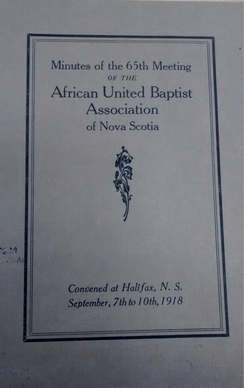
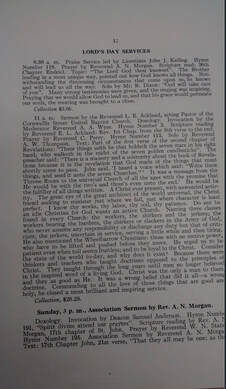
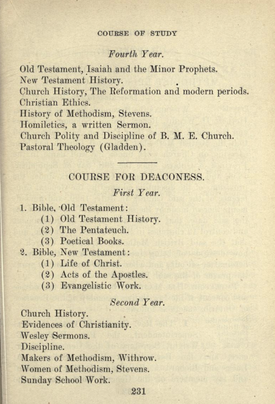
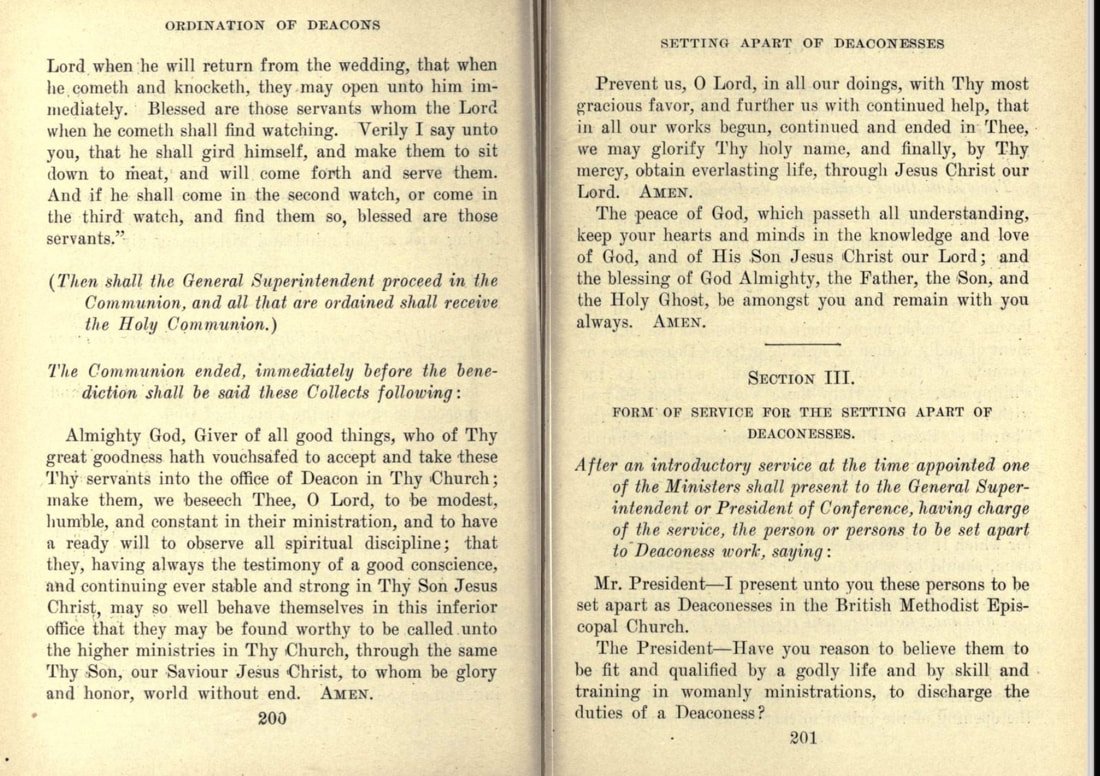
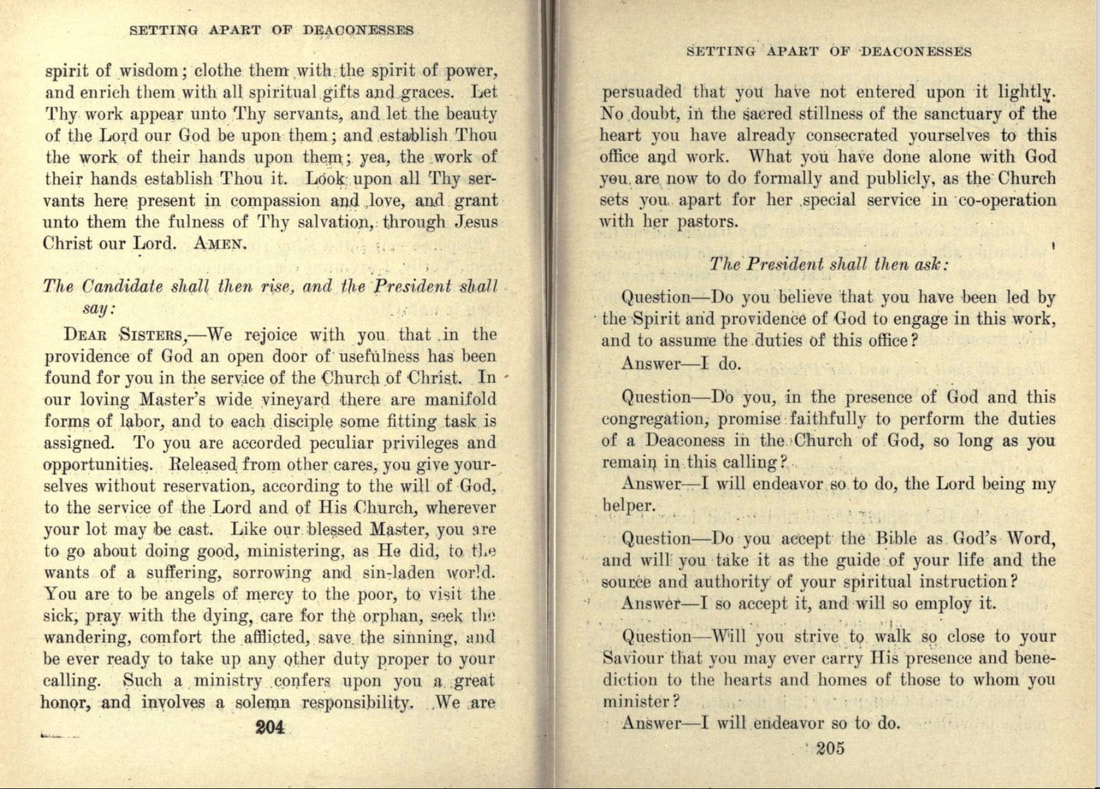
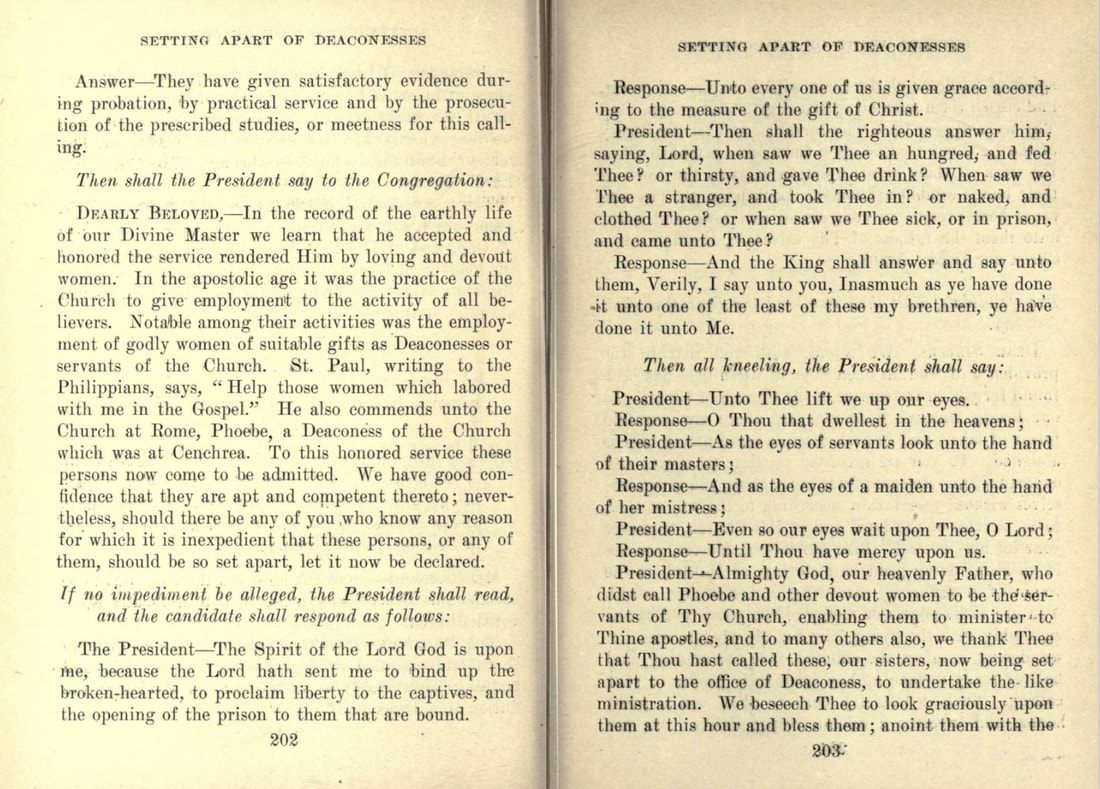
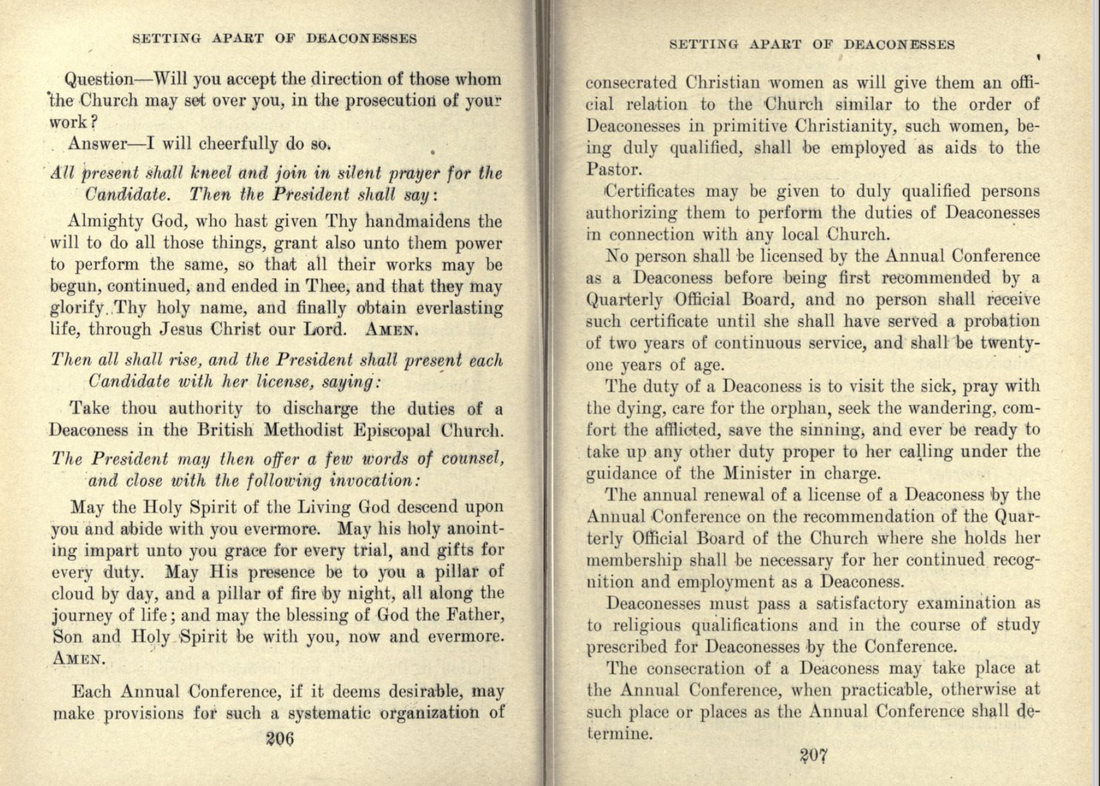
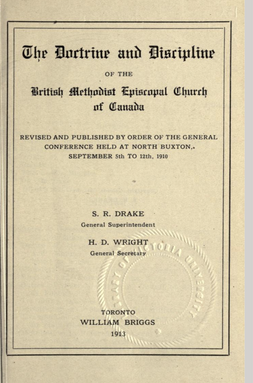
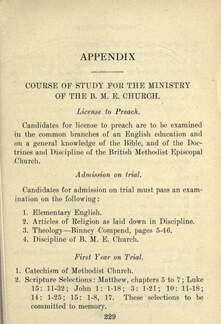
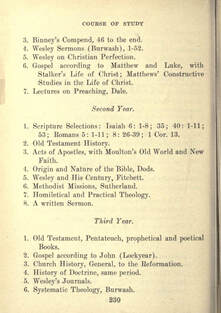
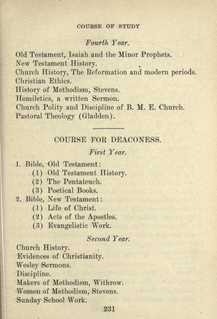
 RSS Feed
RSS Feed
